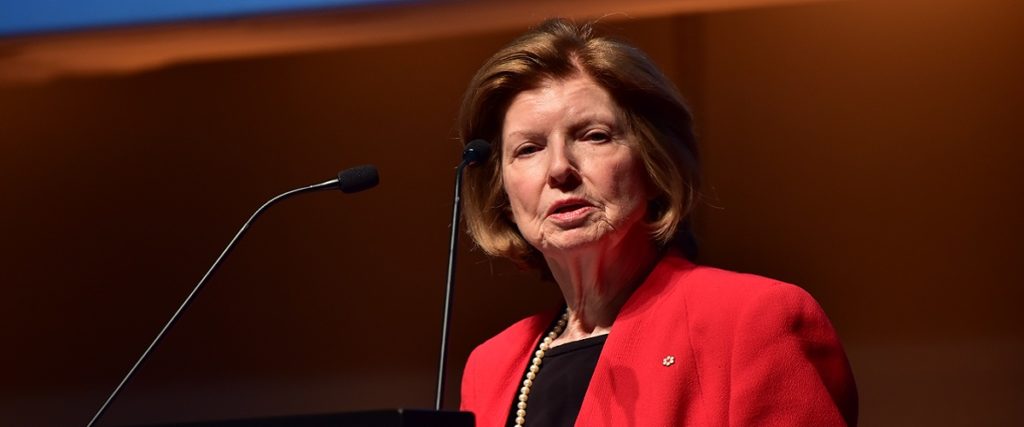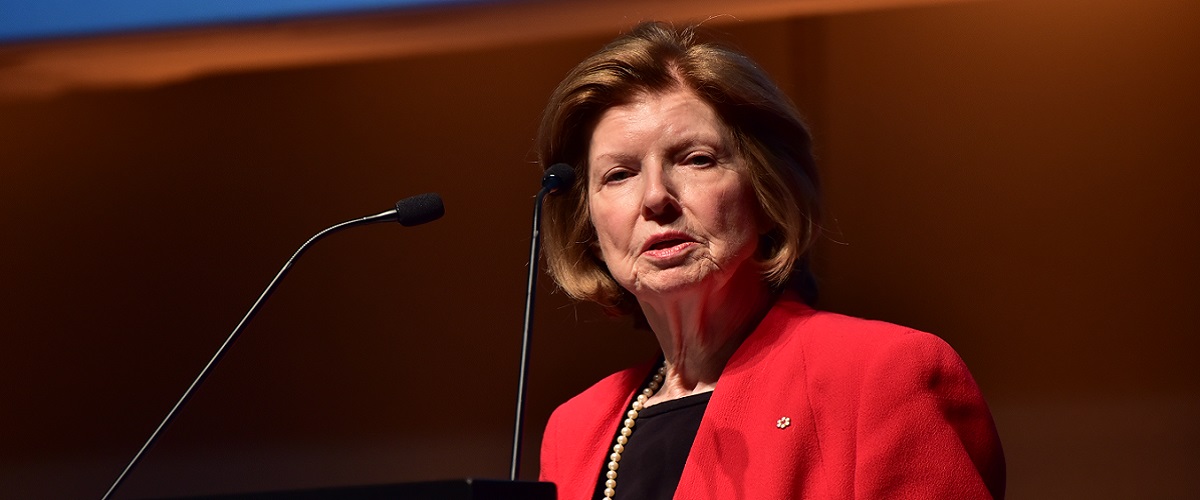
Huguette Labelle, Chair of the International Anti-Corruption Conference (IACC) Council speaks to the IACC participants on the last day of the conference (Photo Credit: Nicholas Bamulanzeki)
The International Anti-Corruption Conference (IACC) ended with a strong call to countries to renew their commitments to the fight against corruption.
“Now is the time to act,” Martin Bille Hermann, Denmark’s state secretary for development policy, remarked at the closing ceremony.
Hermann said that it is a time for countries to make tangible commitments of what they intend to do to combat corruption in the coming years. He reiterated the call to endorse the High-Level Segment Joint Statement, adding that it will act as a tool that activists and watchdogs can use to hold their governments, organisations, and businesses to account.
More than a dozen national governments, including Denmark, along with nine international and multilateral organisations, have issued their own commitments to advancing anti-corruption efforts.
According to the Danish official, his government has committed to intensify efforts to prevent tax evasion and organised economic crimes. Along with ensuring greater transparency in political party financing they have also committed themselves to implement a new national strategy to combat money laundering.
Despite the optimism that countries will work toward fighting corruption, Huguette Labelle, chair of the International Anti-Corruption Conference council, said that it does not end there.
“Fighting corruption is not an end in itself. But there is a fight for social justice, for peace and for security,” she said.
The conference concluded with a declaration, supporting this year’s theme: together for peace, security and development.
It recognised the support needed to protect civil society space and civil liberties, along with the need to defend human rights and advance efforts aimed at eradicating gendered corruption like sextortion.
The declaration also highlights the level of urgency needed to combat money laundering and illicit financial flows that fuel environmental crimes and trafficking in drugs, arms and people.
Tae Eung Kim, the standing commissioner of the anti-corruption and civil rights commission of Korea, said that engagement of young people is key.
“As we are talking about fighting corruption, the role of young people, who are our future generation, as well as the civil society, is very important,” said Kim.
This is likely to be a key area of focus during the 19th edition of the International Anti-Corruption Conference, which Kim announced will be held in Seoul, Korea.


